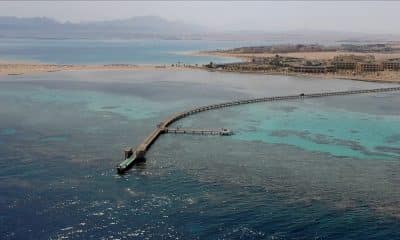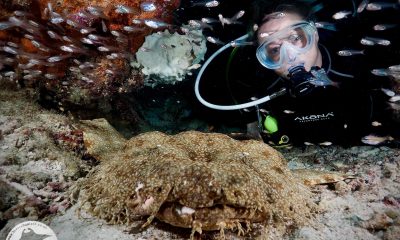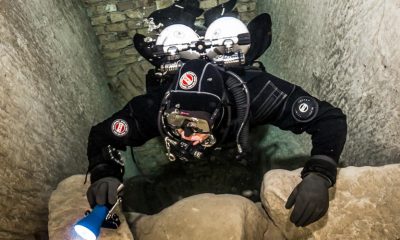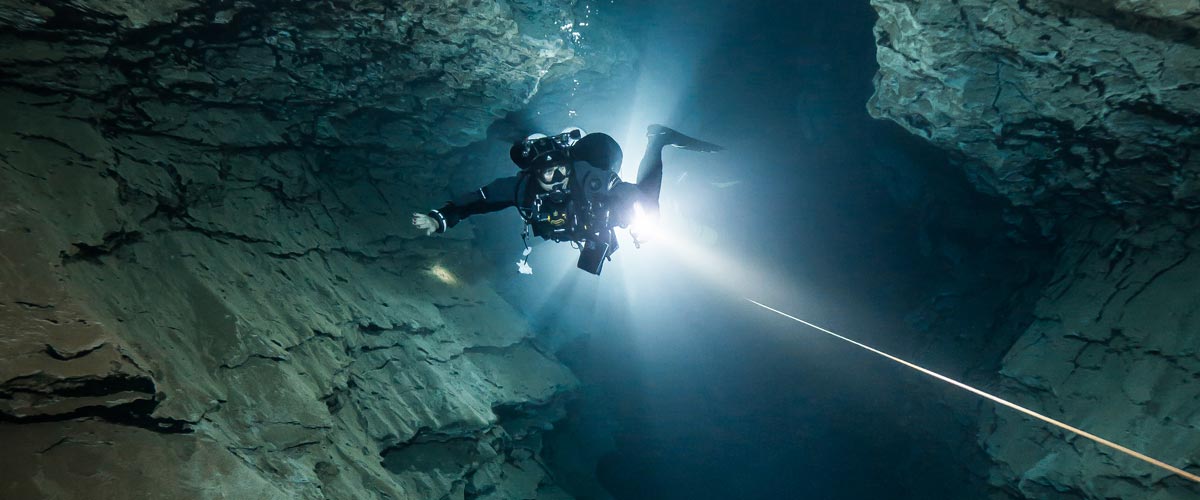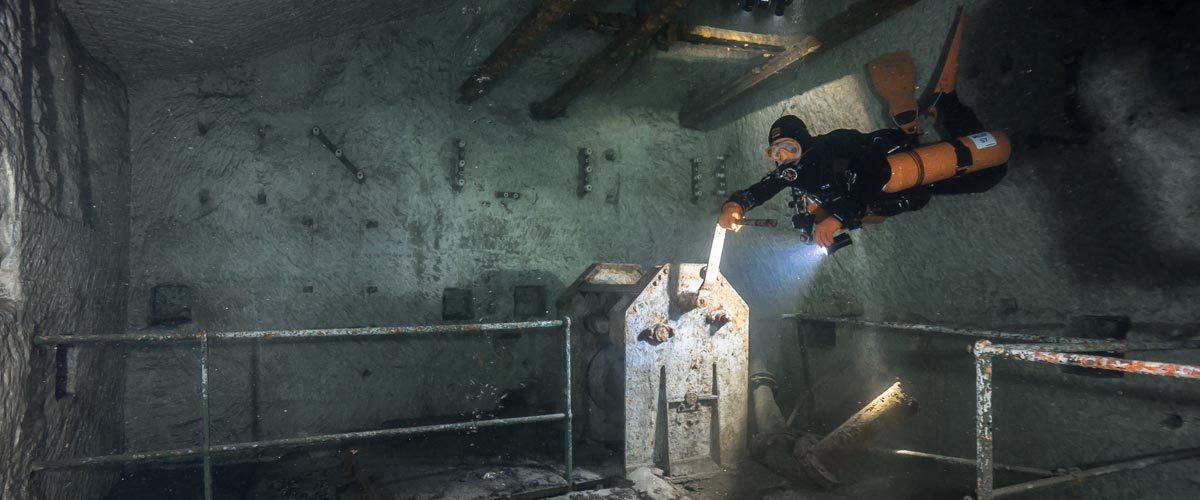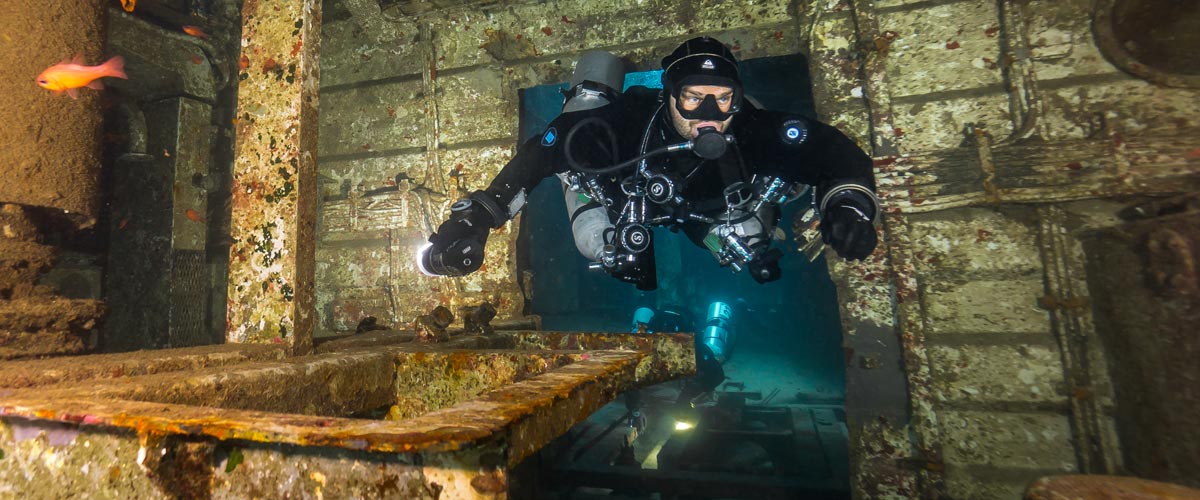Dive Training Blogs
Why Scuba Diving with a buddy is necessary for beginners
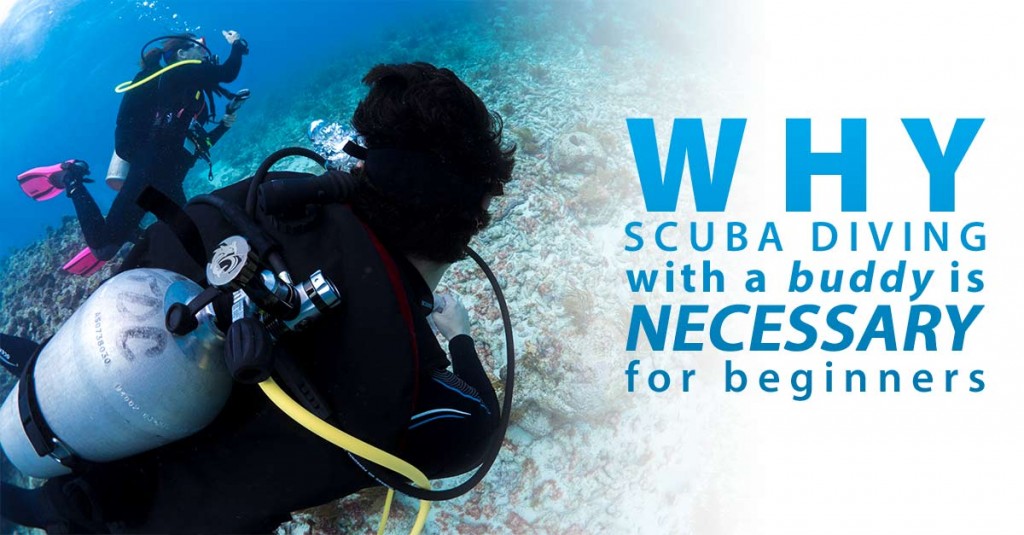
By: Kate Heller
Buddy diving – is it really that important as a beginner? The short answer is yes, of course. As a diver, the buddy system is extremely important and useful. Whether a diver is diving with a newly certified diver or an experienced diver, the buddy system offers plenty of benefits to both parties. The system helps a diver to practice the traits of a good buddy such as buddy checks. This system allows the divers to learn from each other, practice the concept of two being better than one, give assistance, and to share the experience. The most imperative reason for the buddy system is that a diver should never dive outside of their training. That being said, a diver looking to dive alone would need to have training and be certified as a solo diver.
Tools
A valuable tool for a new diver’s progression in their dive skills is to learn from a buddy. This can either be with a new diver like themselves or with an experienced diver. Learning from a new diver helps the pair to learn how to be a better buddy. This can be through repetitive pre-dive buddy checks or being conscious of where they are underwater in relation to their buddy. On the opposite end of the spectrum, being paired with an experienced diver helps the novice to better their underwater skills through observation. It’s possible that during their course, the novice had trouble becoming neutrally buoyant. Observing an experienced diver being neutrally buoyant underwater can help in that skill progression. Aside from learning from a buddy, the concept of two heads being better than one is also learned through the buddy system.
Navigation
Regardless of skill level, all divers will continuously run into new challenges of diving such as navigation. If a new diver were to be diving alone in visibility conditions that were less than ideal or during a night dive, navigation could become quite difficult, even with the use of compass skills. A buddy team would be able to plan ahead for various types of conditions and work through any problems they may have during the dive. A solo diver can do the same; however, for new divers or divers who are still working on bettering their skills, a buddy team allows the team to work together on challenges the encounter. Other challenges could range from a new diver being a little nervous about diving in current or losing a light during a dive. In both cases, a buddy team could work together to get through the challenge as well as learn from it. Aside from the extra set of eyes a buddy team has, there is also a level of comfort that comes with the team. The team can rely on each other and make one another feel more comfortable in the underwater environment while a solo diver must rely on their own skills that they have learned and developed over the years.
Imagine being a new diver and getting to go on a dive in California to visit the kelp forests for the first time. Now, consider some of the problems a diver could run into having never been in that kind of environment before. Problems such as entanglement could be resolved quickly with the assistance of a buddy. Even in a learning environment, a novice diver can bring up instances where the help of a buddy would be necessary. A diver could be overwhelmed and excited about earning their open water certification and neglect to pay attention to their air consumption. In an event like this, having a buddy there would help on multiple levels. Either member of the buddy team will have had the training to consistently ask one another what their pressure is so that the emergency situation of running out of air won’t happen in the midst of all of their excitement.
Know your limit
During an open water course, or any course really, a big point that instructors should make is that a diver should not go beyond their training limits. Although there aren’t scuba police watching your every move underwater, going beyond your scope of experience can be dangerous without the proper training. This is more relevant than ever when it comes to diving without a buddy. The crucial reason for the buddy system is that a diver should never dive outside of their training. They should gain more experience and develop their skills before considering diving alone.
Not only can a buddy help with the above reasons, but diving is all about the experience and adventure. Part of that adventure and experience is being able to share it and talk about it with their buddy as well as other people. As divers, we like to look back on what we have seen and done over the years. Personally, being able to reminisce with a buddy about what we saw and experienced is part of why I continue to dive. It’s fun to talk about and plan more dive trips with my dive buddy to share more experiences and adventures underwater.
Buddy diving is a necessary tool for a diver to progress in their skills not only as a dive buddy but also in their personal skills. They can accomplish this through diving with a more experienced buddy as well as practicing buddy diving with another novice diver and learning from each other. Buddy diving also allows for a buddy pair to always have someone there to provide assistance if needed. With anything new or challenging in any sport or activity, two heads are better than one. The buddy system helps to build the team mentality that novice diver as well as experienced divers need if they want to progress their diving career or if they are diving in a new place. With any dive, both experienced and novice divers need to remember to stay within the scope of their training so that they minimize their risk underwater.
To find out more about International Training, visit www.tdisdi.com.

Blogs
Intro to Tech: What is it about?
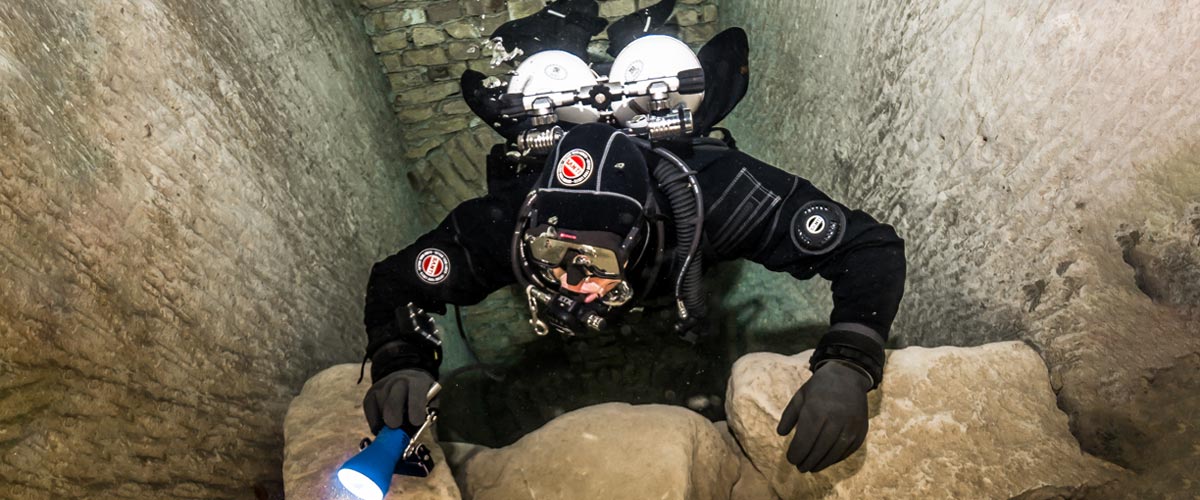
Article by José Pablo Mir
Pictures by Cezary Abramowski
The world of technical diving is exciting. It opens the door to new sites, depths, and bottom times. More importantly, it opens our minds to a new way of planning, facing, and experiencing dives, even those not purely technical.
Becoming a technical diver is a process, and like in other aspects of life, we should find the proper entry point that suits us best based on our knowledge and experience. The Introduction to Technical Diving course from TDI -the world’s largest and most recognized technical diving teaching organization- is the best option for divers who have yet to gain experience in the fundamental aspects of this new practice. The course’s content and its embrace of new techniques and technologies make it possible to acquire a solid foundation to learn and gain experience in this practice properly.
Becoming a technical diver is not something that happens overnight, whether deciding to become one or receiving a certification card stating we are now technical divers. It is a slow process extending farther away than any introductory course. It requires effort and dedication. But it will bring us satisfaction from day one -or two.
It is a matter of mentality
First, we must understand and accept that technical diving, involving greater depths, longer bottom times, exotic gases, virtual or real ceilings, and more, comes with higher levels of risk than the sport diving we have been practicing until now.
Although this discussion usually starts with a warning about risks, as I’ve done in the previous sentence, our practice is not a game of chance.
Technical diving is a rational activity that requires maturity and good judgment, and we will put everything into ensuring that each dive is a successful one -meaning we return from it safe and sound. With this understanding, we will strive to establish a mental attitude more aligned with our practice and its realities.
This new “technical diver” mindset we will develop will lead us to be more cautious in our executions, more analytical in our plans, more rational in our strategies, and more detailed in our procedures.
Experience will keep teaching us to know ourselves better, to keep our anxiety and other emotions under control, and to manage our impulses. Over time, our senses will sharpen, and we will be more attentive to the particulars of the situation we find ourselves in.
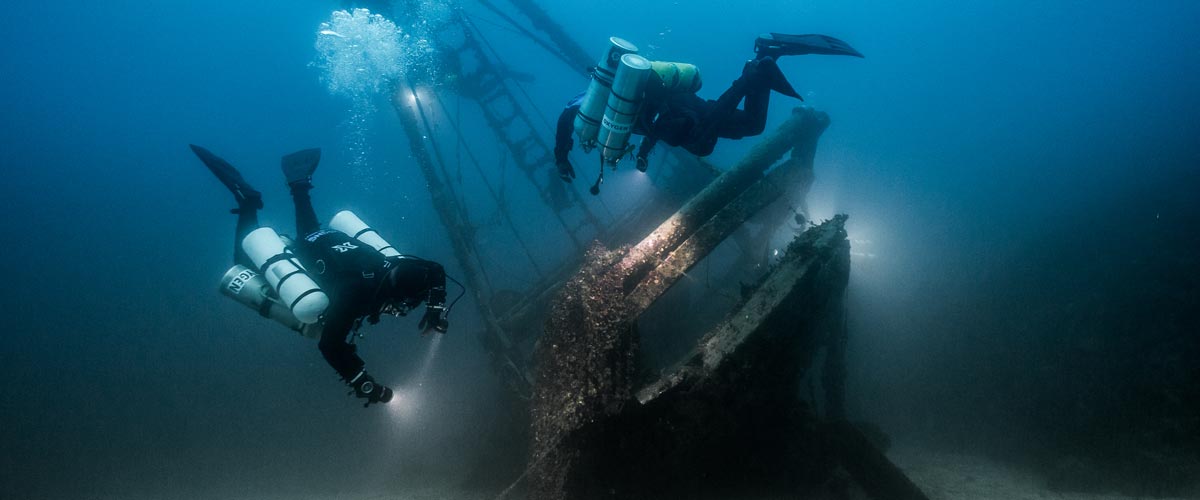
Strategies and procedures
Our strategies, those broad guiding lines tracing the path to follow, from how to approach planning to where, with what, and how we are willing to get there, will be more specific and more practical. Not because they magically become so, but because we will consciously and deliberately frame them that way.
We will establish clear, concise, and realistic procedures. Not only for the undesirable situations that may present themselves but also for those that are part of our dive objectives.
Even though, as technical divers, we often use equipment different from what we were previously accustomed to, it is essential to note that the gear does not make the diver. In a way, we could consider such equipment as the necessary tools to implement what our goal seeks to achieve, according to our strategies and procedures.
Technique plays an important role
We must put our greatest effort into learning and perfecting the different techniques we will be acquiring. Buoyancy, trim, propulsion, cylinder handling, deploying DSMBs and lift bags, valve drills, and more are essential skills we must begin to master to progress in our art. What we cannot do, when we need to do it, can harm us.
Our techniques must be effective and achieve the purpose for which they were devised. But they must also be efficient and require the least resources possible, including the time they take and the effort they demand. Effectiveness and efficiency will prevail over beauty and other considerations that may come to mind, although none of them should be mutually exclusive. A technique executed efficiently and effectively tends to have an inherent beauty.
Refining techniques is a lifelong mission. Some of them will be easy to master from the go; others, on the other hand, will be our life mission and will require many repetitions just to resemble the idea we have in mind of how they should be executed.
We must consider the environment
Our learning, the needs and musts of the practice we engage in, the experience we gradually gain, our strategies and procedures, and even our equipment and tools change with the environment.
Diving in the ocean, everything about us must be suitable for ocean dives. Conditions there rarely emulate those found in a pool, lake, or river. Variable winds and currents, greater depths, visibility conditions, other divers with uncertain skills around us, marine life, maritime traffic, distance from the coast, and many other factors add complexity and uncertainty.
It is never necessary to master the pool on the first day, but planning and aspiring to gradually cope with the ocean’s conditions is essential.
The cost of good training
We are aware that our resources are often scarce in relation to the possibilities of use we could give them if they were not. To a greater or lesser extent, we are part of the economic reality in which we are embedded.
Fortunately, the cost of good technical diver training is not an entry barrier. Comparing training and equipment costs, we see that the former are generally lower. Yes, lower cost for personalized service, essential to our future
performance and safety, than for a series of mass-produced products that are mere, albeit necessary, tools for an end.
The value of good training
The value of the training we received encompasses a range of characteristics, from emotional and methodological to technical and technological. TDI and its Introduction to Technical Diving course offer a deep and modern approach, with a teaching strategy that aims to create thinking divers, not merely obedient ones.
As technical divers, our knowledge is our primary tool. In this type of activity, what we don’t know can harm us.
Is this course optional?
Unfortunately, the fact that this Introduction to Technical Diving course is not a prerequisite for any subsequent training is an invitation to consider it optional. And we all know what usually happens to “optional” under budget constraints.
However, this course should be seen as optional only by those divers who are somehow familiar with the use of technical equipment, who have a mindset more in line with the requirements of this type of diving, who plan and execute the dives the proper “technical” way, who know their gas consumption rate, who are not intimidated by non-decompression tables, who feel comfortable using their dive computers, and know the techniques and have at least an acceptable level of buoyancy, positioning, and propulsion. Those can go straight to a more advanced training course, such as TDI’s Advanced Nitrox.
We must ask ourselves whether or not we are in that group.
Remember our goal: to have fun
Recreational diving is our passion. Jumping into the water carrying heavy equipment and having properly dotted our I’s and crossed our T’s have only one ultimate goal: fun. This is the activity we have chosen as a hobby. We must enjoy it; it must give us pleasure and make us vibrate.
Having a good time is not optional!
Blogs
Four opportunities to go pro in 2024 with Dive Friends Bonaire
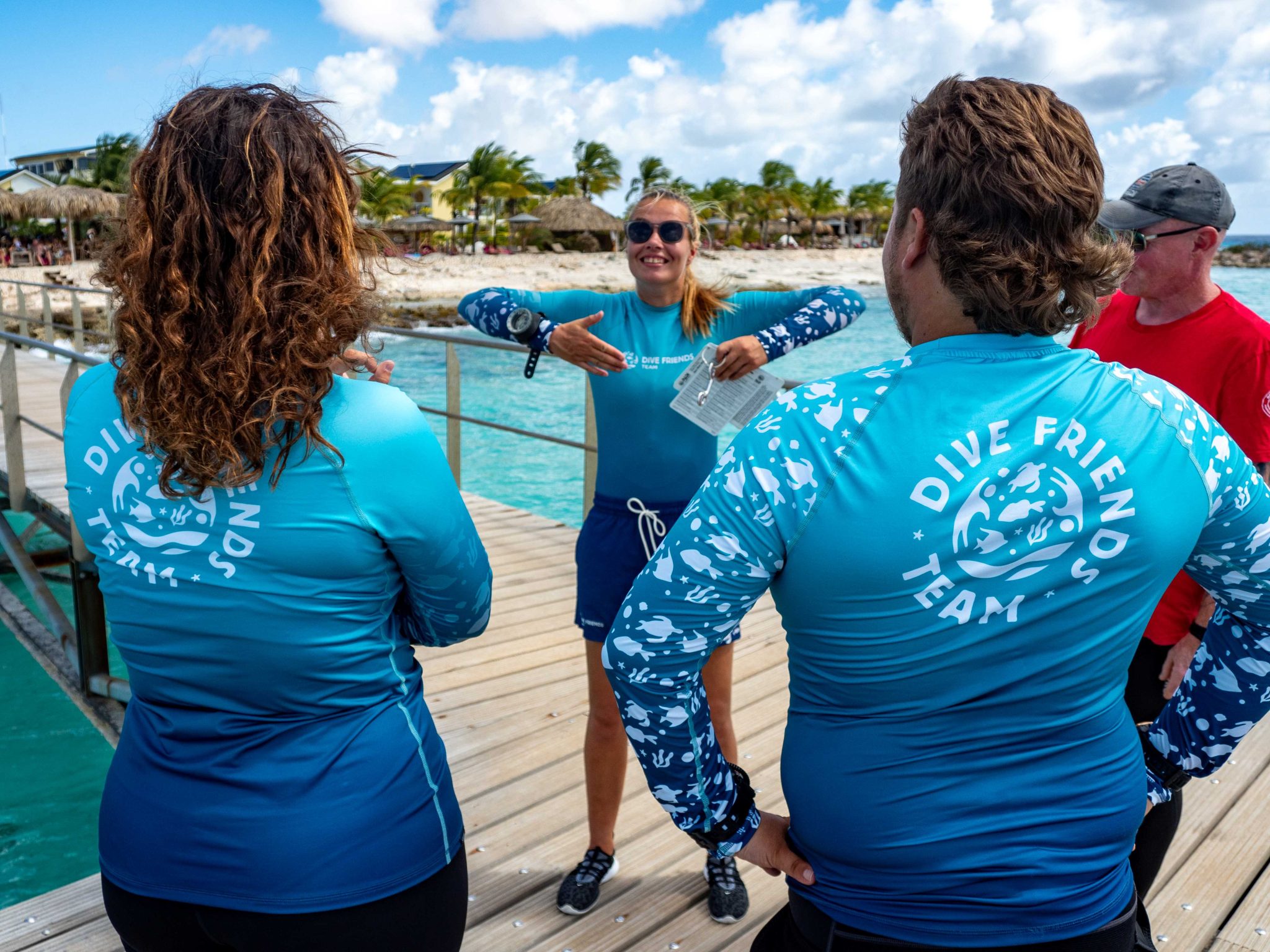
Dive Friends teaches the Instructor Development Course (IDC) several times a year to students who are eager to share their passion for diving with the world.
Dive Friends is known for the personal approach throughout the course. Their in-house course director will lead the students through every essential step, mentoring them to achieve their fullest potential as a dive instructor.
Applications for the following IDC start dates are now open:
- 12 April
- 5 July,
- 20 September
- 29 November
Partnership with Casita Palma
If the student opts for the IDC-Deluxe or IDC-Supreme package, their accommodation will be arranged for them at Casita Palma. This small and quiet resort is within walking distance from Dive Friends Bonaire’s main dive shop location and has everything you need to relax after an intense day of IDC training. Breakfast is included, so the student will always be fuelled and ready for their day.
Contact Dive Friends Bonaire’s Course Director Eddy for more information: coursedirector@divefriendsbonaire.com.
-

 News2 months ago
News2 months agoHone your underwater photography skills with Alphamarine Photography at Red Sea Diving Safari in March
-

 News2 months ago
News2 months agoCapturing Critters in Lembeh Underwater Photography Workshop 2024: Event Roundup
-

 Marine Life & Conservation Blogs2 months ago
Marine Life & Conservation Blogs2 months agoCreature Feature: Swell Sharks
-

 Blogs1 month ago
Blogs1 month agoMurex Resorts: Passport to Paradise!
-

 News3 months ago
News3 months agoDive into Adventure with Photo Pro Paul Duxfield in North Sulawesi this October
-

 Gear News3 months ago
Gear News3 months agoBare X-Mission Drysuit: Ideal for Both Technical and Recreational Divers
-

 Gear Reviews2 months ago
Gear Reviews2 months agoGear Review: Oceanic+ Dive Housing for iPhone
-

 Blogs2 months ago
Blogs2 months agoDiver Discovering Whale Skeletons Beneath Ice Judged World’s Best Underwater Photograph



